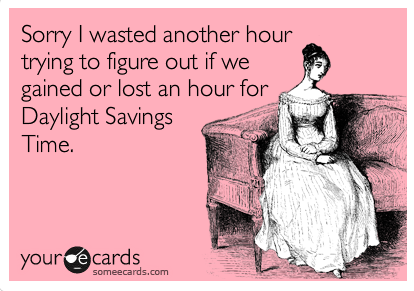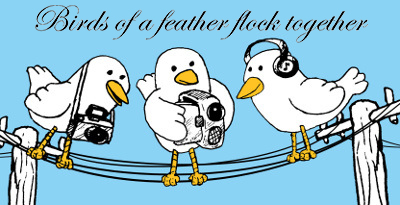In order to better exploit daylight hours in the summer and winter months, many countries make a schedule change. Although this change is only an hour, it can have a significant impact on the population. Colleen Carney, a psychologist at the Sleep Laboratory and Depression at Ryerson University says, for most people, change is imperceptible, but the discussion on the pros and cons of daylight savings arises every year, and a majority agreement never appears to be achieved.
The alleged negative effects appear to result from a perception of time. Whether the days appear shorter or longer is up to personal discretion. In my opinion, pushing time backward or forward an hour does not make much of a difference because time itself is artificial. People assume we are moving forward in time, but in reality we are just moving in space. Hours, minutes, seconds, days, etc., are all man-made increments, but time itself is not.
Source: Riadzany
Changing time to take advantage of daylight hours is not a new concept. The practice began over a century ago. Many benefits have since been attributed to it, as well as a great deal of controversy. The following is a list of the top 5 arguments against the practice known as Daylight Saving:
It’s bad for business
MJ Kamstra, L.A. and M.D. Kramer Levi are the main supporters of the hypothesis that Daylight Saving Time (DST) will adversely affect the performance of the stock market in the post-change Mondays. This point has been refuted by other researchers at H. Berument, however the theory that DST aggravates the stock market has continued to be fiercely defended. This theory is known as “The Weekend Effect”.
Auto accidents.
Changes in sleep patterns alter alertness and increase the number of car accidents, according to Manitoba Public Insurance collision data. A 20 per cent increase in the number of crashes on the Monday following the annual time change was noted in 2014, compared to all other Mondays that year.
Heart attacks.
According to a study published in timeanddate.com, more heart attacks have been found to occur during the first week following daylight saving. This is assumed to be due to increased stress and little recovery at night.
Health conditions:
The time change can hinder the perception of time and may affect our biological clocks. It can cause sleep disorders, especially in children and the elderly. In addition, people who experience frequent migraines and headaches are also affected, and among the healthy population, people have higher daytime behavioural adjustment problems.
Operational efficiency
Not all countries schedule time changes, which may cause problems. For example, scheduling meetings with remote work teams can be difficult. In a globalized economy it is increasingly more common to interact with people from other countries. The best solution is to warn your group in advance to avoid conflicts.
Source: gcrinstitute.org
Those are a few of the major arguments against daylight saving. There are, however, some benefits that comes with it. Did you know that something as simple as the time change has served to prevent terrorist attacks? One of the most striking cases, as stated MA in ‘ABC’ took place on September 5, 1999, when three terrorists failed to consider daylight saving time while setting the detonation timer on their weapon of mass destruction.
Whether time is artificial or not is something that has been debated for years. The way in which we utilize time in our personal lives and in society for scheduling and planning is what makes it a reality. Saving one hour in a day can change our own lives as well as the history of others’, so use it wisely.
In the end, daylight saving time may not be as bad as we think. History has shown there are both pros and cons to incorporating daylight saving time changes into our lives. How does it affect you?






